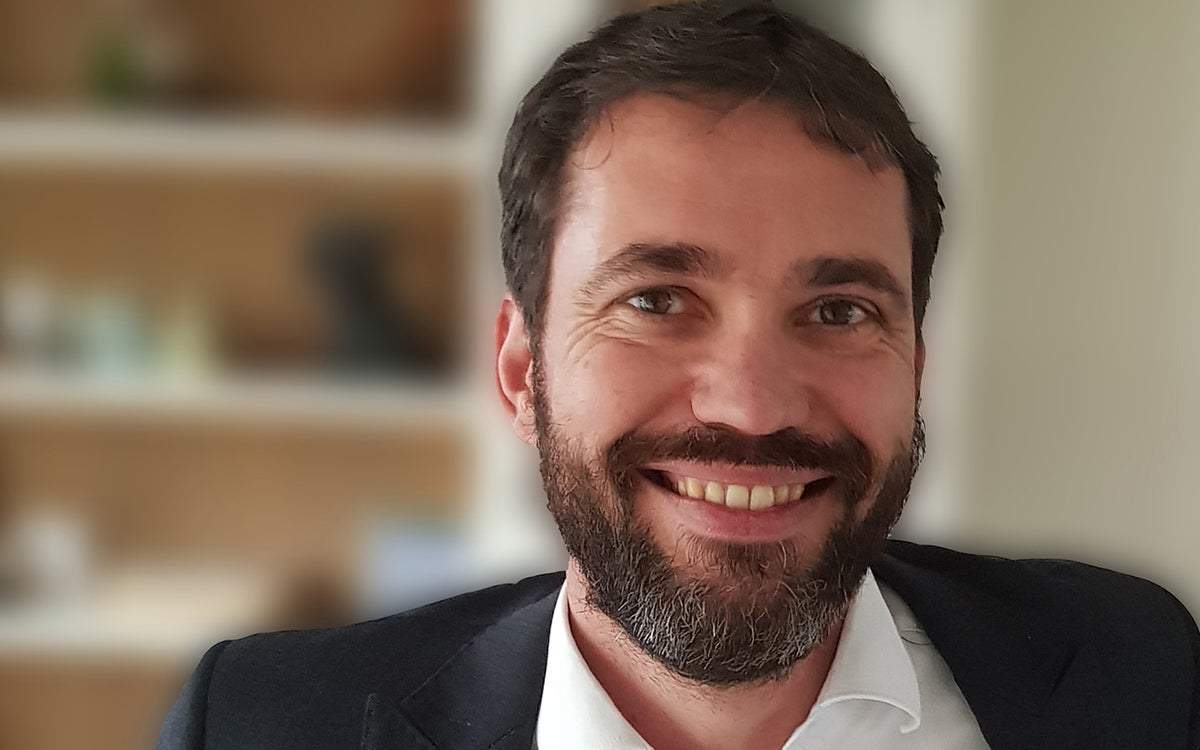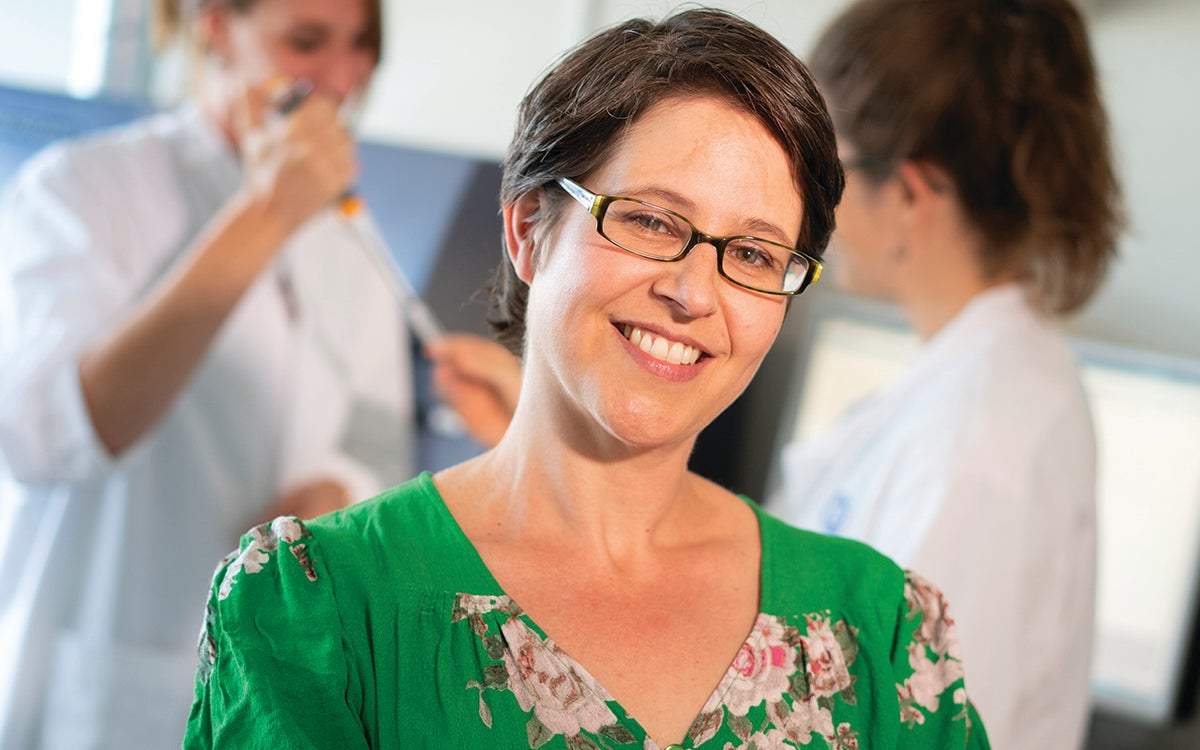Research funding
In 2021 we raised total funds of about EUR 155 million (EUR 123 million in 2020) to conduct research.
Award from the National Growth Fund
In 2021 the National Growth Fund (NGF ) awarded two projects to which UMC Utrecht is contributing. NGF is an initiative of the Dutch Ministry of Economic Affairs and the Climate and the Ministry of Finances for initiatives in healthcare that brings longterm economic growth, among others. The two projects are:
RegMedXB-NGF
NGF gave EUR 56 million to the RegMedXB -NGF consortium (one award of EUR 23 million and a conditional award of EUR 33 million).
The money from NGF is being used to build a national pilot plant for regenerative medicine, including a center at the Utrecht Science Park: Innovation Center for Advanced Therapies (ICAT). ICAT is getting a facility for biomanufacturing, a Good Manufacturing Practice (GMP) stimulation environment and a GMP production facility for Advanced Therapy Medicinal Products (ATMPs) for regenerative medicine . Regenerative therapies are highly complex and are often made to measure for each patient. With these pilot plants, the manufacturing process is improved and the development of therapies accelerated, so that in the future larger numbers of patients can be helped, and costs saved. This offers prospects of recovery for millions of people around the world who are suffering from chronic diseases.
This offers prospects of recovery for millions of people around the world who are suffering from chronic diseases.
RegMedXB stands for Regenerative Medicine Crossing Borders. It is a cooperation of research institutions, government bodies, provinces, health insurance funds, and businesses in the Netherlands and Flanders. RegMedXB also endeavors to provide therapies for people with a chronic disease such as cancer, type-1 diabetes, cystic fibrosis, kidney failure, arthrosis and heart failure, based on stem cells, miniature organs, tissues and smart (bio)materials. Within the NGF project, UMC Utrecht coordinates the building of the ICAT testing plant in Utrecht for which it has been allocated EUR 12.5 million from the NGF subsidy. The Utrecht research hub consists, besides UMC Utrecht, of Utrecht University (Betasciences Faculty and Veterinary Faculty), the Princess Máxima Center, and the Hubrecht Institute.
Health-RI NGF
Health-RI (Health Research Infrastructure) aims to make the use of health data more accessible for scientific research and innovation, and to promote standardization between Dutch healthcare facilities, knowledge institutions, and companies. Health-RI focuses on the infrastructure needed for the exchange and use of research health data. This for instance makes it possible to perform better diagnoses and to move towards prevention. From the Health-RI Foundation, as the only direct receiver of subsidies, three lines of action are coordinated: a national appointment system, the building of the FAIR data implementation of health data, and the facilitation of a desk that gives access to the underlying services and analysis software, including support and training for users and data experts. Investments from NGF amount to a maximum of EUR 69 million for the entire project (a conditional award of EUR 22 million and a reserved amount of EUR 47 million). All University Medical Centers in the Netherlands have the task of setting up infrastructure at regional level to allow data exchange and connect with each other. UMC Utrecht is the Health-RI hub for the Utrecht region. For the first two years, EUR 0.8 million will be available for this purpose from NGF.
ZonMW subsidy for promising healthcare
With the grant scheme for Promising Healthcare at a Care Institution in the Netherlands and ZonMW contributes to making promising healthcare accessible for patients. Only care that is proven to be effective receives compensation from the basis insurance, and for this, good research is needed. In 2021 five studies of promising care in Dutch hospitals received over EUR 15.5 million via these two organizations. Of this amount, more than EUR 10 million went to two studies of cancer treatment in which UMC Utrecht is participating. The money is used to pay the research costs and care for patients who are taking part in the studies.
The two projects in which UMC Utrecht participates, are:
-
One-off treatment of metastatic colon cancer with fewer side-effects for elderly and fragile patients (EUR 6.4 million UMC Utrecht).
-
Laser treatment for a non-operable malignant brain tumor (EUR 3.9 million Radboudumc and UMC Utrecht).
RVO subsidy knowledge consortium for artificial intelligence
To accelerate the application of artificial intelligence (AI) and make it available for (healthcare) innovations via startups, the civil service fund Rijksdienst Voor Ondernemend Nederland (RVO) in 2021 granted EUR 8 million to a knowledge consortium from four cities. UMC Utrecht forms part of this knowledge consortium. Within UMC Utrecht, various divisions and departments are busy with data-science projects, for example improved diagnostics from patient data and images by means of self-learning software. With this RVO subsidy, we can draw links between what is discovered, invented and applied throughout UMC Utrecht, and the possibilities to make this acquired experience and knowledge more widely available.
With this RVO subsidy, we can draw links between what is discovered, invented and applied throughout UMC Utrecht, and the possibilities to make this acquired experience and knowledge more widely available.
KWF investment in eight studies on cancer
Which changes in breast-cancer cells lead to metastasis? How do we prevent follow-up treatment for mouth cancer? The Dutch Cancer Society KWF Kankerbestrijding is investing EUR 4.17 million in eight Utrecht studies at UMC Utrecht and the Hubrecht Institute to answer these and other questions on cancer treatment. The studies were launched in 2021.
Horizon 2020 subsidy for radiation of cardiac arrhythmias
Patients who suffer from ventricular tachycardias, where the heart chambers contract too fast, are now frequently treated with medication or the implantation of an ICD . In cases of persistent arrhythmias that do not respond adequately to therapy, patients undergo invasive catheter ablation. For patients whose symptoms persist after catheter ablation, radiation might offer a solution. In 2021 the STOPSTORM consortium, coordinated by UMC Utrecht, was launched to investigate the option of radiation for cardiac arrhythmias . About 2,000 patients in the Netherlands could eventually become eligible for radiation treatment. STOPSTORM is a European study that is funded with a European Horizon 2020 subsidy of EUR 7.1 million, of which EU 1.2 million goes to UMC Utrecht. The consortium consists of 31 institutions in eight European countries.
2 Veni, 7 Vidi, and 2 Vici grants
The Dutch organization for Scientific Research (NWO) in 2021 awarded two promising young scientists at UMC Utrecht Veni funding to a maximum of EUR 280,000. With this grant, two winners can continue to develop their own research ideas for three years. This pertains to research on the patterns of vascular damage in the brain to deduce underlying disease patterns, and a study of powerful treatments against brain tumors. In addition, seven experienced UMC Utrecht scientists received a Vidi subsidy from NWO of EUR 800,000, with which they can develop their own innovative line of research in the next five years, and set up a research group. It includes a study of the importance of metabolism in (cancer) stem cells, a study of how intestinal cancers start that metastize in a very early stage, and a study of how stress can change the strength of decision-making connections in the brain, how that leads to impulsive eating behavior, and how the process can be altered for the better. Two experienced UMC Utrecht researchers also received a Vici grant of EUR 1.5 million, with which they can do innovative research for five years and continue to build out their research group. It pertains to a study of heartbeat as a source of information on the health of our brains, and a study of the role of naïve T cells in the prediction and monitoring of longterm clinical outcomes of for instance stem-cell transplantation and chronic inflammatory diseases.

Jaco Zwanenburg

Femke van Wijk
The Dutch organization for Scientific Research (NWO) in 2021 awarded two promising young scientists at UMC Utrecht Veni